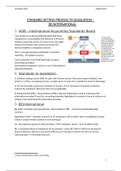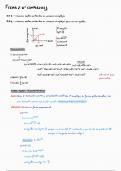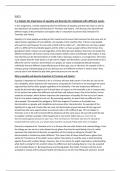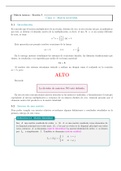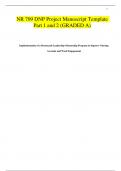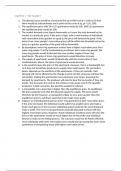www.sec.gov/edgar
Accounting = A system that identifies, records and communicates information that is relevant,
reliable and comparable about an organization’s economic business activities.
Identifies Select economic events (transactions)
Records Record, classify and summarize
Communicates Prepare accounting reports
The accounting process includes the bookkeeping
Who uses accounting data:
Internal:
- Marketing, Management, Finance, and Human Resources
External:
- Creditors, Investors, Stakeholders
Ethics in financial reporting:
- Regulators and lawmakers concerned that economy would suffer if investors lost confidence in
corporate accounting. So in response: Congress passed Sarbanes-Oxley Act (SOX)
- Effective financial reporting depends on sound ethical behaviour
Ethics differs in beliefs that distinguish right from wrong AND accepted standards of good and bad
behaviour.
The accounting profession has developed principles that are generally accepted and universally
practiced. GAAP (Generally Accepted Accounting Principles) Turned into financial statements:
- Balance sheet, income statement, note disclosure, cash flows
These are needed by various users who need financial information.
Accounting rules
US uses GAAP
The rest of the world uses IFRS
- Relevant information
- Comparable information
- Reliable information
GAAP
Standards that are generally accepted and universally practiced. These standards indicate how
to report economic events.
Standard-setting bodies:
- Financial Accounting Standards Board (FASB)
- Securities and Exchange Commission (SEC)
- International Accounting Standards Board (IASB)
Measurement principles:
Historical cost principle = Dictates that companies record assets at their costs.
Fair Value Principle = Assets and liabilities should be reported at fair value.
Accounting = A system that identifies, records and communicates information that is relevant,
reliable and comparable about an organization’s economic business activities.
Identifies Select economic events (transactions)
Records Record, classify and summarize
Communicates Prepare accounting reports
The accounting process includes the bookkeeping
Who uses accounting data:
Internal:
- Marketing, Management, Finance, and Human Resources
External:
- Creditors, Investors, Stakeholders
Ethics in financial reporting:
- Regulators and lawmakers concerned that economy would suffer if investors lost confidence in
corporate accounting. So in response: Congress passed Sarbanes-Oxley Act (SOX)
- Effective financial reporting depends on sound ethical behaviour
Ethics differs in beliefs that distinguish right from wrong AND accepted standards of good and bad
behaviour.
The accounting profession has developed principles that are generally accepted and universally
practiced. GAAP (Generally Accepted Accounting Principles) Turned into financial statements:
- Balance sheet, income statement, note disclosure, cash flows
These are needed by various users who need financial information.
Accounting rules
US uses GAAP
The rest of the world uses IFRS
- Relevant information
- Comparable information
- Reliable information
GAAP
Standards that are generally accepted and universally practiced. These standards indicate how
to report economic events.
Standard-setting bodies:
- Financial Accounting Standards Board (FASB)
- Securities and Exchange Commission (SEC)
- International Accounting Standards Board (IASB)
Measurement principles:
Historical cost principle = Dictates that companies record assets at their costs.
Fair Value Principle = Assets and liabilities should be reported at fair value.

